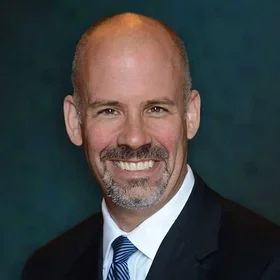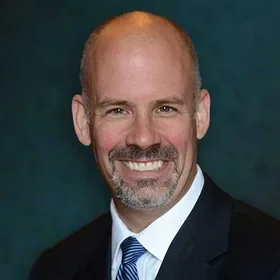Elena Sotolongo (‘22SEAS, Computer Science; ‘16 Girls in STEM participant) was born in Bulgaria and moved from Cuba to Miami at age five. It was right about that time she started falling in love with science and math.
Her interest in nature and experiments developed into a love of computer programming and as a sophomore at high school, in 2016, she was accepted to the inaugural week-long Columbia School of Professional Studies’ Girls in STEM initiative in partnership with the Miami Dolphins. In 2018, she followed her programming dreams to Columbia University in New York, where she is now pursuing a B.S. in Computer Science in the Fu Foundation School of Engineering and Applied Science.
How did you first learn about the Columbia Girls in STEM initiative?
One of my guidance counselors in my high school sent me an email describing the initiative with a link to apply. I heard back that I got in in a few months after and it was a great experience that summer of 2016, after my sophomore year in high school.
What was the experience like?
For a week in the summer of 2016, 15-20 girls gathered at iPrep Academy in downtown Miami. We had two main classes. The first was a career-building workshop where we went through setting up our first-ever LinkedIn pages, how to make a resume, how to prepare for interviews. That was where we got to meet a lot of women in leadership roles or in STEM careers and interact with them. We got to ask them questions about real-life experiences, which was very fulfilling and interesting to hear from them.
The other course was a science class where we studied science and chemistry in food and biological processes. And we did science experiments there.
We also presented on women scientists we admired. I presented on Margaret Hamilton. She was the woman programmer who wrote the code for the Apollo 11 moon landing mission. At that time, coding was considered easy, so it was women who were assigned to those jobs. But it was actually very extensive and if you actually see the code, it is several textbooks of code thick, almost as tall as her. She wrote that all by hand. When the importance of coding was more realized, then men started taking over those positions.
Prior to being in the Girls in STEM initiative, were you aware of the issue of representation for women in STEM fields?
Growing up, I would participate in math bowls and robotics competitions. Those are in groups and I would find myself, more often than not, with only men around me. ...
Working with solely girls in Girls in STEM, I felt like each of us, because we were amongst girls our same age and interests, we could let loose in our passion for science. We got excited and geeked out about things we found interesting. Even if we weren't all interested in the same fields, we had the same passion and drive for research and science. It was exciting to be able to bond with other girls my age.
What were your biggest takeaways from the initiative?
My biggest takeaways were the career-building workshops and hearing from other women who were leaders in STEM. I took away a sense of the interconnectedness of lots of different fields in science and how, at a certain level, all of them interact with the humanities. If you’re in computer science, you’re going to have to work with engineers at some point.
Working with solely girls in the Girls in STEM initiative ... we could let loose in our passion for science. Even if we weren’t all interested in the same fields, we had the same passion and drive for research and science.
— Elena Sotolongo, ’22SEAS, B.S. in Computer Science; ’16SPS Girls in STEM participant
What drew you to Columbia for undergrad? Did you feel Girls in STEM prepared you for Ivy League STEM education?
As part of the networking and career-building program in Girls in STEM, we met with Columbia and Barnard students studying STEM fields. They answered a lot of our questions about what classes are like. From that point on I was interested in Columbia.
As I did more research, I realized there’s a very strong engineering and science school here, but it is still integrated with the humanities core. I always liked reading philosophy, sociology, as an interest/hobby. I liked that they stressed the importance of integrating psychology, economics, with technology and engineering, because those things will always be interrelated and will have influence over one another. I think you need to develop those skills codependently.
What have your favorite classes been so far?
I, of course,particularly like the coding and programming courses I’ve taken. “Intro to Java” was really challenging, but it probably taught me the most important foundational things I’ll need in the future. Right now I am in “Advanced Programming,” and we’re going to build a server. It feels like I’m actually delving into what I’m going to be doing in the future. I also love my Humanities classes — right now I’m taking the “Science of Psychology.”
What is the most exciting part of the future of STEM to you?
The reason I like Computer Science is that there is no real limit yet to what you can apply it to. You can apply it to anything from code breaking to linguistics to mathematics to biology to machine learning and robots and medicine. It is so widely applicable and I’m interested to see the different fields and what new technology will arise.
What’s next for you?
I would like to graduate. I’m currently applying to internships and jobs for the summer. I’m going to graduate undergrad and hopefully get a job, either in New York City or back home in Miami. Depending on what happens, I’m thinking I’ll also pursue a Master’s degree. Most likely computer science, unless I decide to go another direction.
My advice [to girls interested in STEM fields] would be to just always stay interested. If you find a curiosity in something: don’t be afraid to ask questions about it.
— Elena Sotolongo, ’22SEAS, B.S. in Computer Science; ’16SPS Girls in STEM participant
Do you have advice for girls out there that want to pursue STEM study or work?
My advice would be to just always stay interested. If you find a curiosity in something: don’t be afraid to ask questions about it and look into it on your own time. There’s only so much you can get from a classroom, you have to do work on your own time. Don’t be afraid to push yourself to develop that passion. Explore.

